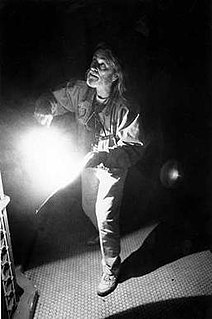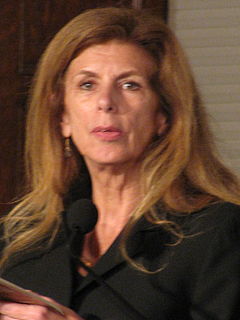A Quote by Richard Dyer
Vores's settings fit Torgove's voice like a knife's sheath; they are alert to the harmony of every poem and to every shift of tonality within.
Related Quotes
Raphael's pleasure, his kiss, sent her over a second time....and it wasn't until they both stirred again that Raphael reached down and undid the strap of her knife sheath, putting it and the knife on the bedside table. "Beautiful as this sheath is," he said, touching the leather, "I much prefer the one which holds my blade.
A language like Ruby is a toolbox with some really neat little tools that do their job really nicely. JavaScript is a leather sheath with a really really sharp knife inside. That knife can cut anything, and with it you can do anything. You can kill a bear. You can catch fish. You can whittle a piece of wood into a pony. It's even a toothpick.
The religion of the short poem, in every age and in every literature, has a single commandment: Less is always more. The short poem rejects preamble and summary. It's about all and everything, the metaphysics of a few words surrounded by much silence. …The short poem is a match flaring up in a dark universe.
From a distance the world looks blue and green,
and the snow-capped mountains white.
From a distance the ocean meets the stream,
and the eagle takes to flight.
From a distance, there is harmony,
and it echoes through the land.
It's the voice of hope, it's the voice of peace,
it's the voice of every man
Kids today and for the last 20 years have held the fork and knife in unbelievable ways. They hold the fork with a fist and the knife like a saw and they shovel it in. It doesn't matter to them which way they hold their knife and fork. They eat every which way. I'm amazed they get food into their mouths at all.
All that you seek is already within you. In Hinduism it is called the Atman, in Buddhism the pure Buddha-Mind. Christ said, 'the kingdom of heaven is within you.' Quakers call it the ‘still small voice within.’ This is the space of full awareness that is in harmony with all the universe, and thus is wisdom itself.



































